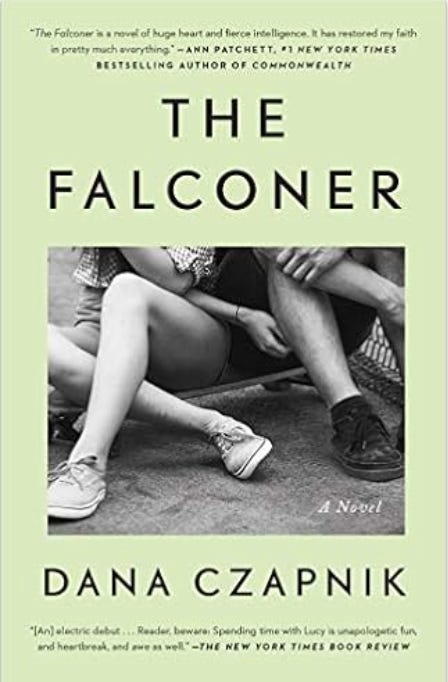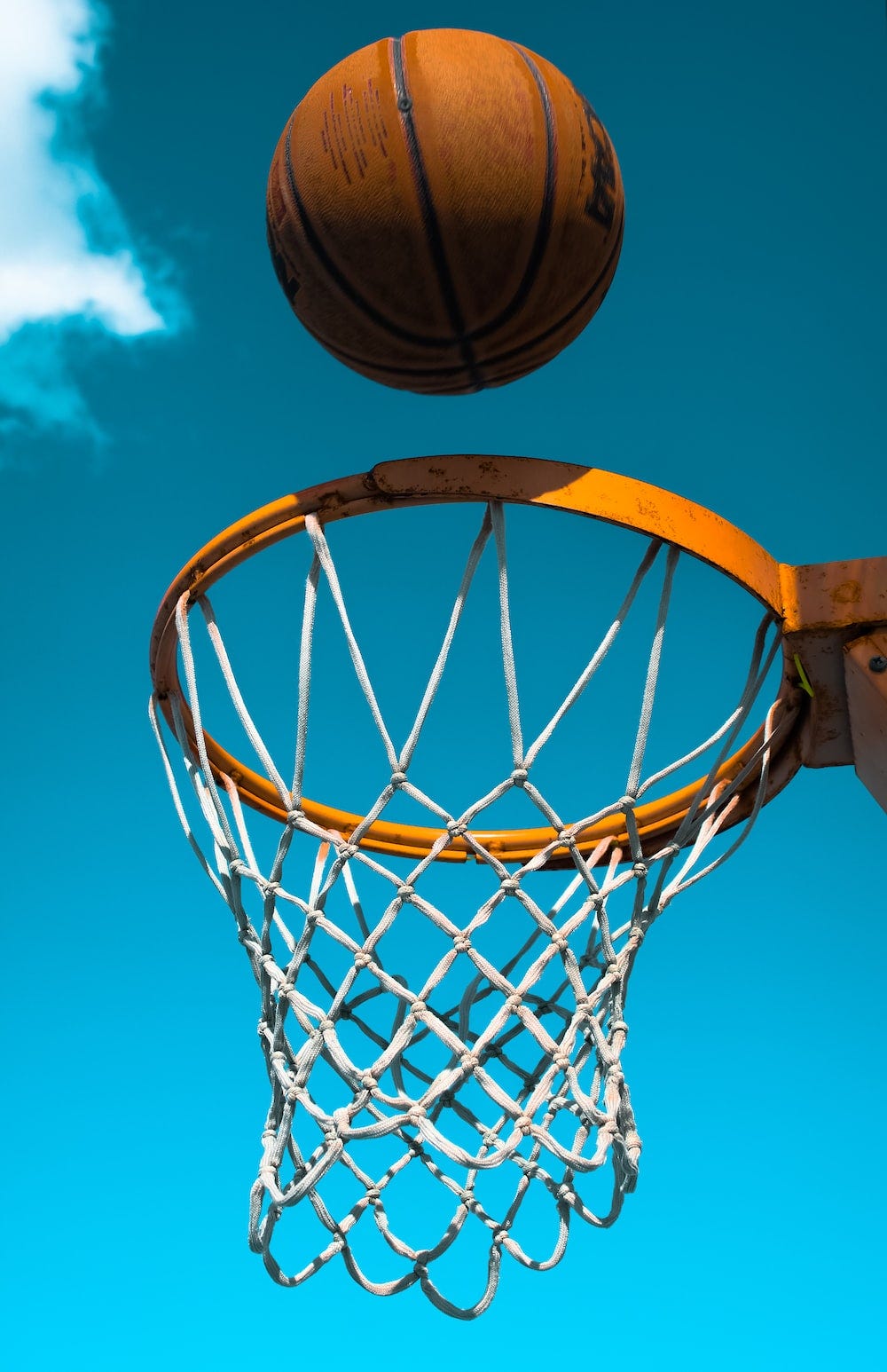Seventeen-year-old Lucy Adler loves basketball. We meet her playing pick-up ball on a public court, the ball in her hand “covered with a fine layer of New York City diamond dust—pavement shards, glass, crystallized exhaust from the West Side Highway.” Her exhilarating inner voice narrating the flow of the game is kinetic poetry.
By page two, you know Lucy is good—and not just good for a girl. At the end of the game, an older guy, says, “‘…you the real thing, you the real thing,’ …and he takes my hand and pulls by whole body into his, smacks my back three times, giving me a genuine but sweaty bro hug.”
By page three, you know she’s in (unrequited) love with Percy, her best friend since childhood and the person she loves playing basketball with more than anyone, including her high school teammates. They’re as comfortable with each other as puppies, they talk about everything under the sun—but for Lucy it’s nowhere near enough, though she can’t even imagine it being more.
After all, she’s tall, clumsy off the court, refuses makeup, feels awkward in anything but jeans, and doesn’t really fit in any group of girls she knows. Why would Percy choose her?
He’s very rich and very handsome; beautiful girls fall at his feet and he dates and discards them, leaving a trail of heartbreak. Wicked smart and funny, a voracious reader, he’s bored by school, reckless in his desire for intensity. A hot mess of rich-kid privilege, guilt, and entitlement.
Still, I couldn’t help caring about him. I couldn’t help wanting him to see, really see Lucy and—and fall in love with her. The real thing.
That’s the set-up. But Dana Czapnik’s The Falconer is about so much more than basketball and love—though I’ve never read a book that pairs those two things better. It’s about being a girl and, even harder than that, being a girl athlete in a world where boys aren’t still supposed to reign—but do. It’s about having a loyal, no-nonsense best girl friend who totally gets and celebrates who you are. It’s about the crazy fun of adolescence, hanging out with friends, dreaming under the stars, clueless about “real life” in dangerous, terrifying, thrilling ways.
Reading The Falconer made me feel seventeen again. Such a wonderful, terrible age.
It made me remember how little I knew then, how I’ve learned over the years that what I thought of myself at seventeen was not what most other people thought of me.
Which was probably why another thing I love about The Falconer is what I, the reader, know about Lucy that she doesn’t know about herself. How okay she really is, how if she can keep being her true self there’s a good chance the right kind of person will fall in love with her, if that’s what she still wants.
(I know she’s not real, has no life after the book, but…)
I want to give this book to every teenager I know, to say, “Look, you’re not the only one!”
The funny thing is, The Falconer was not published as a Young Adult novel.
As an author of five YA novels, this interests me. In fact, I’m often asked, “What, exactly, is a young adult novel?” I haven’t been able to find a definitive answer, but over the years I’ve established (my own) standards for what makes a good one:
· It’s a mirror in which kids can see their own complex, often difficult selves.
· It’s a coming-of-age story, its characters driven by self-discovery, the ultimate task of adolescence.
· It has a raw, wondering tone, the sense of life being lived right now.
· Its characters’ thoughts and behavior reflect the self-absorption, lack of perspective, and skewed experience quintessential to that age.
· Its plot hinges on the traits and/or experiences that create tension in young people’s lives and that cause them to behave badly and/or make mistakes.
· Above all, it tells the truth about life.
The Falconer meets every one of my standards.
So does The Catcher in the Rye. But there was no such thing as a young adult novel then.
There are literary young adult novels now, though.
I’m not saying The Falconer should have been published as a YA. Just that it interests me that it wasn’t. It makes me think of Someday This Pain Will Be Useful to You, a YA novel by Peter Cameron. It’s narrator, James Sveck, a closeted gay kid whose hilarious, heartbreaking take on his upper-class Manhattan life is told in as true and compelling a voice as Lucy Adler’s.
Peter Cameron had published numerous, wonderfully quirky adult novels, very different from Someday This Pain Will Be Useful to You, and his editor at Farrar, Strauss and Giroux turned it down it because “…it wasn’t a Peter Cameron novel”. Another publisher said the same thing, which drove Cameron to submit the book to FSG’s children’s division as a YA, where it was published. It got fabulous reviews and sold better than any of his other books.
I loved it so much I asked Peter Cameron for an interview, (which you can find in, Novel Ideas: Contemporary Authors Share the Creative Process.) We had a wonderful conversation about his various novels, but when I asked how he felt about Someday This Pain Will Be Useful to You being published as a YA, he hesitated. He said, logically, it would have been his first novel; he’d written many short stories with similar topics as a young writer. But it had taken twenty-five years for him to have the distance he needed to write it. He didn’t think of it as a young adult novel, though, and had mixed feelings about where it landed, despite it having been so successful.
Now, fifteen years later, the book can be found in the adult fiction section of bookstores; online booksellers list it as adult fiction, too. There’s no trace of its life as a YA.
Adding to the mystery of What is a YA?
Read the Falconer if you’re a teenage girl, especially if you’re a teenage girl athlete. Or a mom with a teenage girl (athlete) or a dad with a teenage daughter (athlete) or a “regular” person who cares about teenage girls. Or a teenage boy brave enough to want to know what a really cool girl is like.
Or a person, any kind of person, who loves basketball.
Lucy Adler’s voice, alone, is worth the read.






I love your book reviews and recs! This one sounds great!
Barb, I’m sharing this one with my 35 year old daughter who is a girls soccer coach (on the side) with teens. Thanks.